Why is the API model traditionally built around a central entity node connected to many consumer nodes, rather than the other way around? Why is it possible for me to connect with various APIs from cloud services like Twilio and Dropbox but I can’t create an API for myself that allows companies to connect with me?
Instead of going to the cloud, why can’t the cloud come to me?
Put it this way. I watch Star Trek on both Hulu and Netflix. My episode history is out of sync on both platforms. Why is that? Because these are separate services with their own backends. There’s no way for them to talk to each other, and there isn’t because there’s only one point of intersection: me.
But what if I could store my own episode history in a personal API, which then Hulu & Netflix would talk to? Both would have permission to update my episode history, and both would have read access. I would give Netflix billing access to the banking endpoint of my API, and so they would enable additional access on their platform. They could push content to my API endpoint and it could be synced between all my devices, including my phone which would also have read access to my API.
Everything would remain “in the cloud,” but the cloud would be my own personal cloud. A mini-cloud, if you will.
There are several types of information that could be stored in a personal API:
- My personal contact information
- My correspondence
- My media
- My preferences: brands, things I read, movies I like
- My shopping history
- My payment information
- My medical history and prescriptions
Pretty much all the things I do online I could do with a personal API, but there would be a few advantages introduced by creating a new protocol:
- I would be able to control my own data. Companies/services would need to request access to my data on an individualized basis. I would only give data that would be needed for each service.
- Privacy becomes completely up to me. I would be able to control how access to my data is granted and revoked. My data is only in place accessible only through authentication to my API. I can revoke access tokens upon request.
- “Add-ons” to my API service could be enabled like encryption or new REST endpoints, that would allow me to evolve what my API is able to achieve.
- I could create direct P2P connections with fellow users of the Personal API protocol without having to connect through a third party server.
- The protocol could integrate with multiple devices, but the nature of these devices would need to change. For example, if I wanted to send a message to my brother, right now I send a text message to his phone which gets routed through AT&T’s cell phone towers (for example). But with a personal API, I would send a message to his API endpoint, and his devices would all pull from it. So it would be like iMessage, but an iMessage that would integrate with *everything* I interact with.
- On that note, the “internet of things” becomes much more possible. Instead of having to program all my devices, my devices would be adapted to me. When I buy a new product, it requests access to my API, and then can interact with other services that also have access to my API.
- It weakens the government data dragnet. Right now, one clandestine program by the NSA can tap into Facebook once, and have access to everyone’s data. With a distributed personal API, the government would need to focus its attention on just nefarious or dangerous individuals. The legal status of a personal API would be more akin to a lockbox in my house than a self-storage center that is analogous to the current cloud.
If a personal API protocol were to be created, that would only be the first and easiest step. Cloud services would need to play ball, adapting their account creation and sign in systems, not to mention data access and storage, to work off of my personal cloud rather than their common cloud.
Speaking of Facebook, everything I have listed above is something Facebook could create tomorrow (or Google or Apple), and they may even be considering doing so. They certainly have access to the data necessary to create the API. But they also have the problem of centrally storing that data, creating a single point of failure/weakness/whatever. A centrally stored backend does not meet the criteria of a truly personal API listed above. It needs to be distributed.
Again, it’s a specious concept, and I can’t be first person to think about it, but I would be interested in A) If anyone has fleshed out an idea like this a bit more or attempted to build it, B) Either way, if anyone would be interested in working on something like this with me.
Would love your input in the comments.

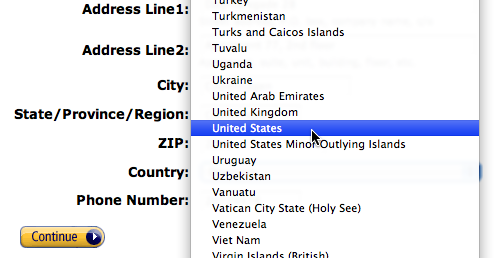
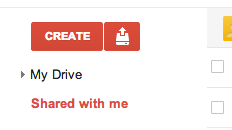
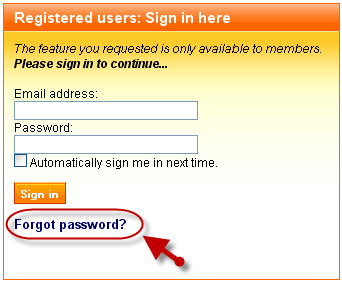

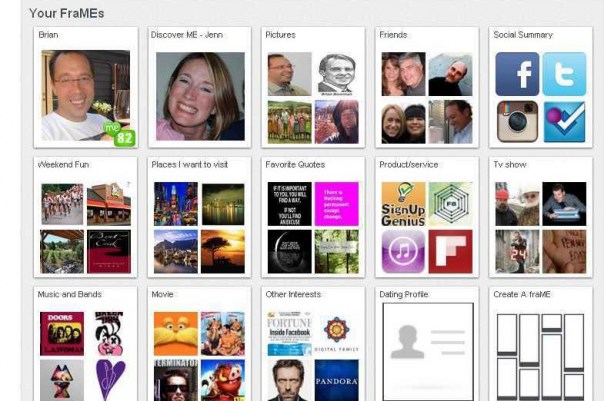
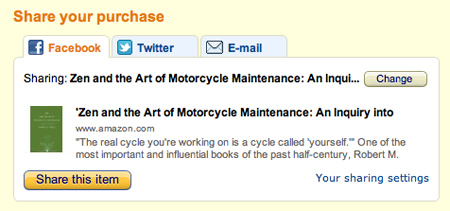



 I read a recent article that, due to the fact that cell phones are the primary communication tool for Kenyans, cell phone programming is a fast growing skill in Nairobi, Kenya, and more importantly, the Kenyans who use cell phones are a fast growing market. Meanwhile, thousands of companies in India’s Silicon Valley compete for prominence in the Western world, trying to sell their products to American and European buyers. But pretty soon, the Indian population will be demanding these services, too, and it is only a matter of time before the “Developing” world market explodes–and explodes big.
I read a recent article that, due to the fact that cell phones are the primary communication tool for Kenyans, cell phone programming is a fast growing skill in Nairobi, Kenya, and more importantly, the Kenyans who use cell phones are a fast growing market. Meanwhile, thousands of companies in India’s Silicon Valley compete for prominence in the Western world, trying to sell their products to American and European buyers. But pretty soon, the Indian population will be demanding these services, too, and it is only a matter of time before the “Developing” world market explodes–and explodes big.
Notes on Friendship (and Facebook)
I found this article the other day, and it isn’t that recent article by today’s terms (read: 6 months ago) but it is still relevant.
First and foremost, I found it particularly interesting how Deresiewicz tied the history of friendship to our latest foray into “faux” friendship, seeming to trace a line directly from Plato to today in a highly critical view of what we’ve “done” to friendship. But he mischaracterizes the root cause of the problem–it is is not Facebook or MySpace that made us who we are, just like it wasn’t the invention of writing that made people write 10-page long letters. Could not a monk in Ireland lament in 1350 that his ability to write 10-page long missives to his clerical compatriot in Kiev hampered his ability to maintain a close friendship based on conversation and personal intimacy? Certainly Jefferson and Adams did not maintain their letter-writing friendship at the expense of their conversations, but it allowed their friendship to grow and be maintained when distance hampered their communication.
Point being, Facebook may be a technology that enables briefer, less intimate intercourse, but it is not Facebook’s fault that we use it for that. Indeed, Facebook is the latest technology that allows us to do what we seemingly want to do more than anything else–perceive the illusion of friendship without doing the work necessary to create and maintain a Platonic one. But what’s wrong with that? Certainly the telegraph-writers were a proud and noble breed for quite sometime after mobile telephones were commonplace. Certainly there were some horseback riders riding bareback long after the invention of the saddle. But technology clearly enabled some to communicate and ride horses better and more efficiently. We might lament the loss of the agrarian culture, but there’s a reason most of us live in cities. Maybe we are naturally short-focused, uninterested, shallow, petty friend-whore-mongers and Facebook is the first tool that allows us to be what we want to be??
This article to me seems pretty nostalgic, ironically posted on an online forum where comments range from “Good article! XOXO” to “Make me your Facebook friend!” But it does address quite well the changing social relationship of friendship, and it doesn’t lie when it observes that “We haven’t just stopped talking to our friends as individuals, at such moments, we have stopped thinking of them as individuals. We have turned them into an indiscriminate mass, a kind of audience or faceless public. We address ourselves not to a circle, but to a cloud.”
However, like the saddle and the steamboat, maybe that cloud is ultimately an improvement in our lives, not as a social change bound to undo us, but a critical change in the patterns of friendship that stretches, as the author observes, back to Plato. Yes, our world would look much more different today if the typical Tweet was 5,000 words long and every Facebook message ended with “And thus justice is more profitable than injustice,” but it would look different without the millions of improvements to our lives that we don’t even consider. If anything, Facebook has allowed old friends to reconnect in adulthood, new friends to be made around the world, and networks to be created–certainly not close, intimate cliques like one might find in the comraderie of a small town, but diverse networks with people from different backgrounds and experiences, bringing the whole world closer together. These rapid connections have smoothed relations between people and even nations, substituting physical rivalry and enmity for petty online squabbles. Think about being at war today with a country like France, with millions of Facebook users to exchange bickering “fighting words” with. Think about being Facebook friends with an enemy soldier. It sounds absurd. But at the same time, it gives you an idea of the closeness created by an “arbitrary cloud” of “friends.”
I would say in response to this article that Facebook may claim, or want to be, a space for friends, but it is not. I know who my real friends are and who my online relationships pretend to be. I know that the Facebook feed is not a real representation of what my friends are doing–but that’s OK. It’s ok to fantasize and explore new relationships from the safety of the internet. It’s ok to experiment with dialogue in short, opportune bursts instead of long, vulnerable missives. And it’s ok to openly court friends in places one has never been able to do so.
At the same time, when it comes time to find the real world and find real friends, people haven’t had a problem doing that. If anything, technology has given us more leisure time to spend time with friends. Having multiple close friends is not a bad thing, nor is having hundreds of online friends. Just because the word “friend” has been diluted, doesn’t mean the concept of friendship is any less real.
Anyway that’s what I’m thinking. I really enjoyed the article, but as a commentary on today’s friendship the author makes some bold claims that aren’t supported by the way in which we actually use social networking.